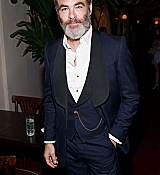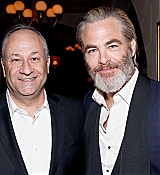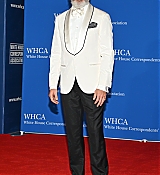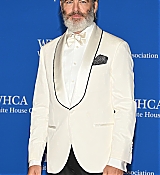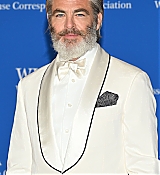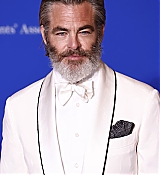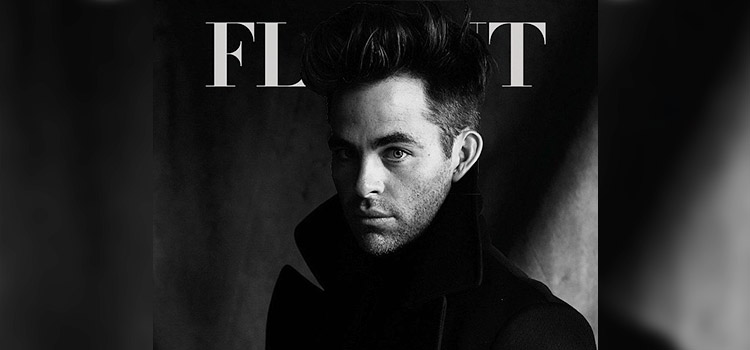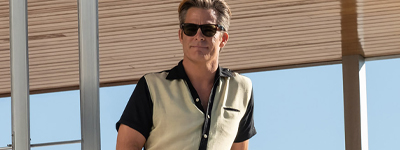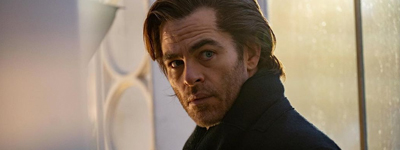Chris covers the latest issue of Flaunt Magazine titled the The Frankenstein where he discussed his competitive streak, the addictive nature of validation, and self-realization.
You can find a snippet of his interview from the issue below which you can read in its entirety over at Flaunt.com
Things are about to get a little off-course with Chris Pine.
There’s still about a half-hour’s worth of sunshine in Silver Lake and a few after-work joggers are parading by the large windows of the restaurant where Pine and I have agreed to meet for dinner. He strolls in, Hollywood casual and a few minutes late, chipping a silver-screen smile at Kelsey, the bartender, as he crosses the room to shake my hand. This, along with his dashing enthusiasm for the wine list —“It’s always so exciting”— is the sort of thing that’s more or less expected, but as anyone who’s ever gotten mysteriously lost trying to find the 5 Freeway will tell you, L.A. can have a way of toying with one’s sense of direction.
Somehow, for the first 15 minutes of the interview, and after some curious prodding on his part, I’m telling Pine what an arrogant ass I’ve been in my own not-so-distant past, relating a few MFA workshop experiences from a few years ago, when I found myself in a room every week with a group of gifted writers and was intimidated into shutting down creatively: “I had been there thinking I would dominate. Like, I’m going to go in and I’m gonna do this thing.”
Pine gets it, adds, “And how immediately—that self-awareness—you’re like, So then what the fuck am I doing here? Am I all about just beating people? It’s a really interesting thing.”
I tell him I figured things out, but that I had to work on myself awhile. “I was able to start getting back to a place where I’d been originally, which is, this is fun. You know? This is just fun.”
He says, “I think that’s the greatest part about being in an artistic [place], is that you get to use it as a way to grow. The only way—it’s almost like it comes hand in hand. It’s like, as you become ever more integrated and self-aware, you know what your foibles are, your weaknesses are, your strengths are.”
These subjects—self-transformation, self-realization—are where the conversation is finding focus. And Pine’s interest explains, perhaps, a conversational tic. He’s a relentless self-editor, taking care before answering any question and often restarting twice or thrice before continuing a sentence. There is no unexpurgated Pine. This trait could be ascribed to obvious intelligence, and that’s part of it. But there’s an impression that some considerable control is being exercised, a filtering of evolving options, and I feel I’m watching Pine write his responses on the fly. This is reinforced by the fact that he’s attentive to the specific words he chooses, as well as being a careful listener, at least twice recalling conversational details once-mentioned by me two glasses of wine earlier.
Composure’s the right word, especially in the sense that the moment itself is being composed. We’re seated in a corner of a white tablecloth dining room framed in lots of dark wood, attended by a genial staff familiar with Pine’s patronage and who keep a ready, but distant, orbit. As the night proceeds, wine flows and takes hold, and the noise picks up, but gradual, steady increases of intensity lend a sense that the evening is somehow choreographed, the setting conceived. I have the unexpectedly pleasurable feeling of being a character who’s found a story. I’m hoping for some good dialogue.
I say, “So you’ve said that you’re taking time to be irresponsible. How’s that coming along?”
And I get a laugh. “I don’t know if it’s taking time to be irresponsible. It’s just I think I was a very kind of by-the-books kid, studied hard and was home on time. It’s just that I’m getting older and kind of realized…the brevity of it all?”
“Did something happen to underscore that?”
“No, it just—I think I was a hard worker, and I am a hard worker sometimes to my own detriment, that I’m a little bit too…way too hard on myself. I mean, to your point—that’s why I really resonated when you were talking about when you’re in this class, you’re like, I’m gonna kick everybody’s ass. When I got into acting, you know, ?I would always text my agent or manager after an audition and say ?I killed it! Even the language of that is…to what end?”
I say, “It’s a process when you’re changing viewpoints like that, and, for me, trying to figure out how I was going to get back to writing again—was a way of trying to put myself in a centrifuge and separate those parts of my personality out that are impelling me towards this competitive, you know, what am I afraid of?”
“I like that image of the centrifuge. I think that’s right. It’s like you’re trying to distill—well, I like it, because it speaks to the many, many different parts of who you are and also that quite possibly there’s something that sinks deepest when that thing spins around, which is, maybe, that thing that is you.”
It’s a nice point, and charming given how he’s extended the metaphor.
